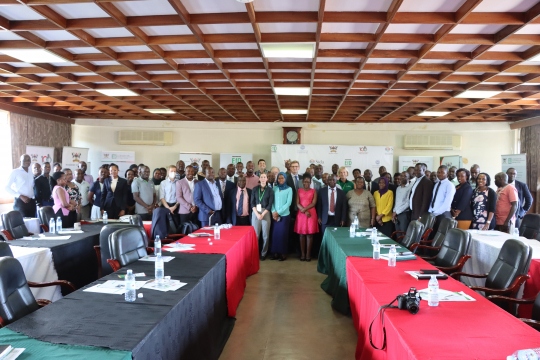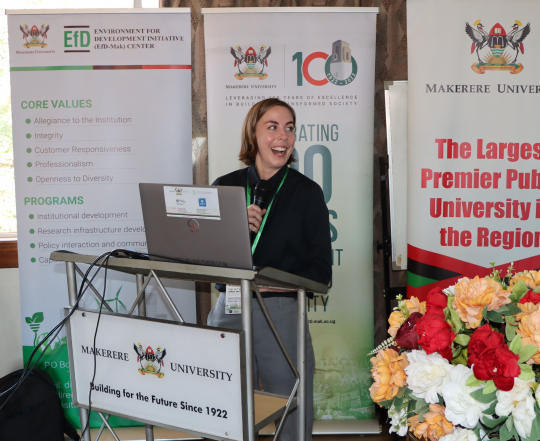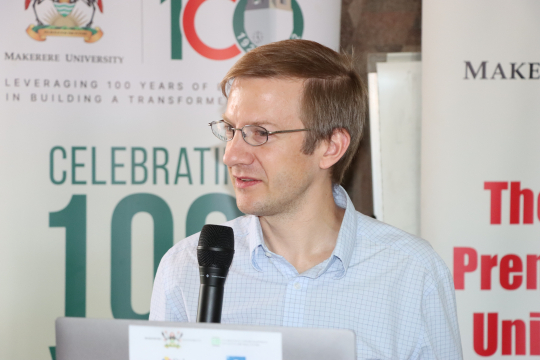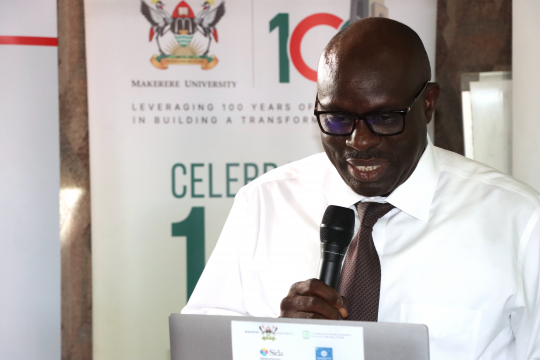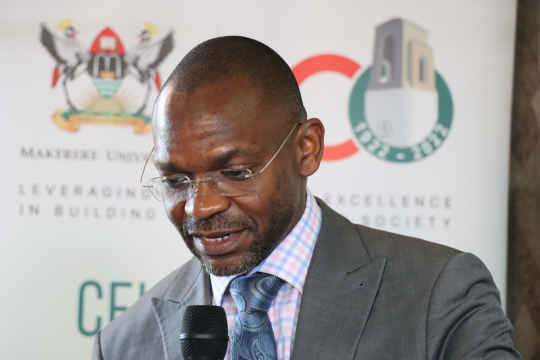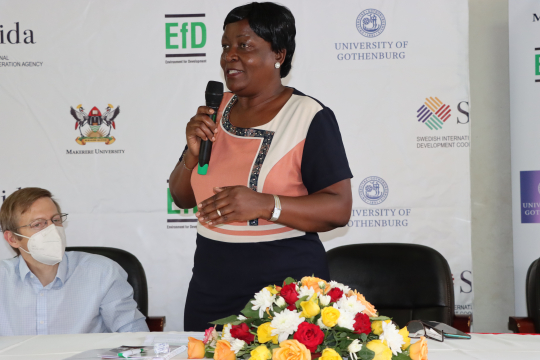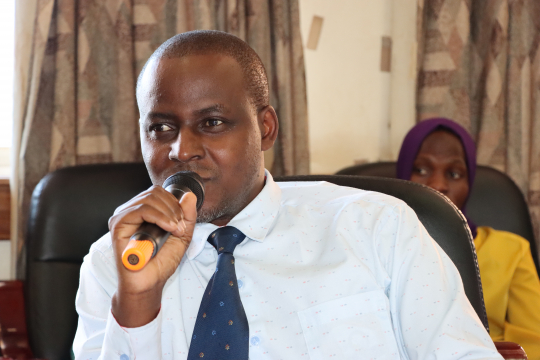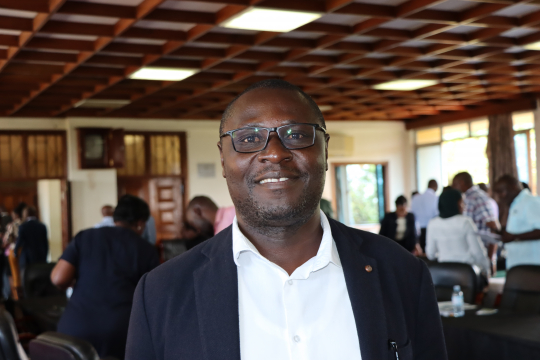EfD-Mak Uganda arranged a policy day at Makerere University, Kampala, in connection with EfD’s Annual Meeting. High-class panel discussions and keynote presentations were followed by a lively plenary discussion where different perspectives were highlighted.
About 100 people from the national and local governments, the private sector, financial institutions, development partners, the World Bank, civil servants, and academia participated in the meeting. The theme of the policy day was Green financing and capacity gaps.
Would generate great benefits
A great part of the Ugandan economy is dependent on its nature, but the growing population puts increased pressure on it. 80% of the food and 40% of jobs in sub-Saharan Africa and South Asia are tied to small-scale agriculture that is highly vulnerable to climate change. Yet just 0.2% of the roughly $600 billion in annual climate-related financing globally goes to small-scale agriculture value chains. These figures were presented by keynote speakers Victoria Plutshack and Mark Jeuland from Duke University.
According to their research, it is estimated that investments of about $2 trillion in sectors like climate-resilient infrastructure, low-carbon agriculture, and coastal mangrove restoration would generate $7 trillion in benefits through a combination of avoided costs and a variety of social and environmental benefits.
Capacity-building needed on all levels
They explained that climate finance is currently not meeting the needs of low- and median-income countries (LMIC). Climate investments lack data and understanding of the potential impact of these investments. These investments are generally not moving forward. Investors are often looking into big projects with long time spans that are not relevant for smallholder farmers. There is also the challenge of measuring the impact of the investments.
And there are more challenges with green financing.
"You may not like to hear this, but fossil fuels and mines will continue to be major drivers for Uganda's economy for the next 30 years, and without those sources of income, there wouldn't be any green finance," noted Sam Mugume Koojo, Ministry of Finance.
He also underlined how dependent Uganda is on its natural resources for tourism (its leading source of foreign exchange) and agriculture (which employs 70% of the population) and the importance of well-functioning green finance programs.
Professor Eria Hisali, Principal of the College of Business and Management Sciences, underlined the importance of capacity building at all levels, global and national as well as grass-root levels.
“We need to establish the target groups for green finance actions, determine the most appropriate instruments for those target groups and build a framework for evaluating the interventions,” said Eria Hisali.
Get out of the “ivory tower”
Umar Kakumba, Deputy Vice-Chancellor (Academic Affairs) of Makerere and Chair of the Advisory Board of EfD Uganda, underlined the importance of academics not remaining in their “ivory tower” but making sure that their research results in capacity building and establishing policies and practices that benefit society. He also declared that the World Resources Institute (WRI) has signed an MoU (Memorandum of Understanding, that is, a formal agreement to proceed with a common line of action) with Makerere that will kickstart an adaption program.
“It’s important that the ‘tripod’ of government, academia, and industry works together,” he said.
Above the heads of grass-roots
During the panel discussion, Rebecca Ssabaganzi, Wakiso District Local Government, Natural Resources Department spoke on behalf of the grassroots.
“Applying for funds is so complicated that the money goes back. What we discuss here goes way above the heads of the grass-roots,” said Rebecca Ssabaganzi.
In addition, she raised serious concerns that money aimed at green projects doesn’t always land in the right pockets.
Other concerns were raised by Isaac Mugume Lecturer Department of Geography, Geoinformatics and Climatic Sciences, and the Director of Uganda Meteorological Authority.
"Climate change has been caused by the rich countries - how much will they contribute to green financing? he asked.
Several participants at the meeting underlined the importance of academia, government, and business coming together to discuss solutions and also address problems and challenges and how to move forward.
One of them, Mike Nsereko is the Director of Policy Planning and Information at the National Environment Management Authority. He was also a participant in the first cohort of EfD’s Inclusive Green Economy Program (IGE). These policy days are according to him important and valuable to attend.
“The discussions that link academia to policy help us make more informed and actionable policy decisions,” he said.
By: Petra Hansson
